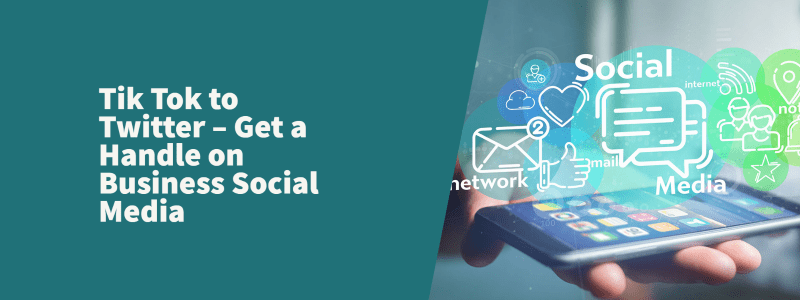Social media is at the forefront of marketing for almost every business. While social media won’t always impact sales, it allows you to remarket to people. These people have already made the decision to follow and be interested in your company. This type of exposure is invaluable if you can get your social media strategy right. But business social media can be a difficult landscape to navigate if you’re not sure where to start. Hopefully this piece is something that can help guide your decisions when it comes to social media use, and give you the confidence to produce great, useful social media content.
What is Social Media and How Should it be Used?
Social media has been a large part of the 21st Century and covers a lot of what many people see as business marketing. While there’s lots more to gaining people’s attention through marketing than social media, it is in fact one of the most accessible and cost-effective forms of customer engagement and marketing available to businesses large and small.
If it is used correctly, it can give you the chance to talk directly to both new and existing customers, as well as the potential customers you want to attract. This type of exposure can be invaluable when wanting to communicate news, new products/services, or remind customers that you are available.
One of the big problems with social media is that there are a number of platforms that need different strategies. With this, they will also need different content for each. You will find that there is an overlap of which customers use numerous platforms, but there will also be different demographics for each. LinkedIn, for example, is a different type of media than TikTok. That means that the people on there are looking for different things, and you should tailor your content effectively. That can seem daunting but if you put a plan in place and stick to it, that can take a lot of stress away.
The Social Media Platforms
Twitter is a platform is up and down. While the users are still high – at 450 million as of 2022 – it is a platform that is currently under the microscope. Be it earnings or the takeover by tech tycoon Elon Musk, these are choppy waters for Twitter. While it a platform that can product popular content, it is difficult for smaller businesses to make a mark.
TikTok
TikTok is one of the newer social media platforms and is gaining more focus from brands as they discover the power of short, often irreverent videos that attract a younger audience. This platform isn’t right for some business, but others it could be a brand awareness dream. You just have to be ready to suspend what you think often makes sense.
Facebook is one of the easiest – and largest – platforms to release content, but organic content (content that isn’t sponsored/paid for in similar ways to adverts) has a very limited scope for success. Unless you start with a large follower base, you’re going to have very little impact other than ticking the box of using Facebook. Saying that, the platform does have the most users for a reason – and they’re likely to use your Facebook page as their first stop to checking out your business.
Instagram is a visual platform, using photos more so than text. This requires you to either have great photos or the ability to create good graphics. Without these you can’t really expect to host a professional and popular Instagram account.
One benefit of Instagram is being able to tap into the use of hashtags (these are keywords that can help you search and group posts based on popular topics) to grow your platform.
YouTube
YouTube is a platform that uses video (mostly pre-recorded but sometimes live) to provide users with answers and entertainment to various subjects. When it comes to small businesses, there are benefits to using YouTube if you have the ability to create high quality, engaging videos. YouTube is probably the least used business social media platform but does have its uses.
Things You Need to Know About Social Media
Here are a few basic things to remember when you’re thinking about setting up your social media channels:
- You need to decide why you are using each platform, and what you want to get from it.
- Come up with a goal for each platform, something you can measure over time. Whether that’s followers, engagement (likes/comments) or reach of your posts.
- Review what your competitors are doing and what successes they are having. This will be useful for the next step.
- Spend time coming up with content ideas based on the above. Think about the uses of each platform, and what your customers may appreciate.
- Identify programmes that you can use to create this content. There are numerous free and paid options for this.
- You will not automatically get a following. You will need to work at it and advertise your profiles offline.
Business Services Direct365 Offer
While Direct365 do not offer social media management services, we do offer other services that help you concentrate on what matters to you – your business. We offer waste, hygiene, and compliance services at a low cost, to ensure your business is legally compliant and running smoothly. Want more information on just a few of our services? Complete the form below.


